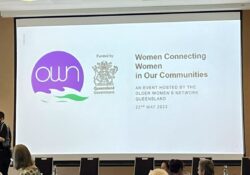Generally speaking, elder abuse is often perpetrated by family, friends, carers, and other trusted people, rather than by strangers. Many cases of elder abuse have similarities to family and domestic violence. Research suggests that women are more likely to experience elder abuse than men.
Elder Abuse is on the rise – however, there is no comprehensive data on the prevalence of abuse of older people receiving aged care.
The Aged Care Complaints Commissioner have received reports of a number of instances of abuse of older people receiving aged care, including abuse perpetrated by paid carers, other residents, family members, with sons and daughters often being the main perpetrators.
Issues surrounding elder abuse relate to areas of commonwealth, state, territory, and possibly local government responsibility. Some older people are not willing, or too scared, to report abuse to police, even when criminal offences have been committed. In some cases, due to advanced dementia or a medical condition, an older person may be unable to make a report to police.
There is no obligation in Australia for victims of crime or witnesses to make a report to the police, however, certain occupations are required to report cases of child abuse; and under The Aged Care Act, aged care providers are required to report unlawful sexual contact or unreasonable use of force on an older person in an aged care facility to the police and relevant departments.
In the recently released Australian Law Reform Commission’s (ALRC) Elder Abuse Discussion Paper 83, some of the reforms being proposed are:
- the introduction of the ‘reportable incident scheme’, requiring that aged care providers would need to report types of abusive conduct to the Aged Care Complaints Commissioner;
- enhanced employment screening for people working in the aged care sector;
- unregistered aged care workers would be subject to a code of conduct; and
- regulation of relation to restrictive practices.
COTA welcomed the opportunity to comment on the (ALRC) Elder Abuse Discussion Paper 83. The Commission’s Inquiry into Protecting the Rights of Older Australians from Abuse is a critically important initiative. We believe that the Inquiry will lay the ground for and give greater impetus to an overdue national response to law reform, service delivery and cultural change to protect older people from elder abuse.
COTA supports the intent of all the Proposals in the Discussion Paper. We acknowledge the comprehensive nature and scope of Proposals and the value of the supporting discussion and evidence. We strongly support the overall approach in the Discussion Paper to strengthening protections against elder abuse.
In our brief contribution below we:
- make comment on the crucial issue of defining elder abuse;
- identify Proposals we consider to be particularly important and urgent to implement;
- identify what we consider to be gaps in coverage of the Proposals; and
- offer additional comments on selected Proposals.
Read COTA Australia’s full submission here.
The Elder Abuse Discussion paper is a useful resource to kick off the uncomfortable conversation, and, for people experiencing abuse, this public conversation is incredibly important – and long overdue. Starting uncomfortable conversations about the prevalence of elder abuse may be the first step to reducing it.
The United Nations Principles for Older Persons states that older persons should be able to live in dignity and security and be free of exploitation or physical or mental abuse.
Older persons should be treated fairly, regardless of age, gender, racial or ethnic background, disability or other status and be valued independently of their economic contribution.
The abuse and exploitation of our seniors is a human rights violation and has no place in Australia.
If you, or someone you know, is experiencing elder abuse, please contact the police or phone the Elder Abuse Hotline on 1300 651 192. If you are concerned about elder abuse and want to learn more, please visit www.eapu.com.au


